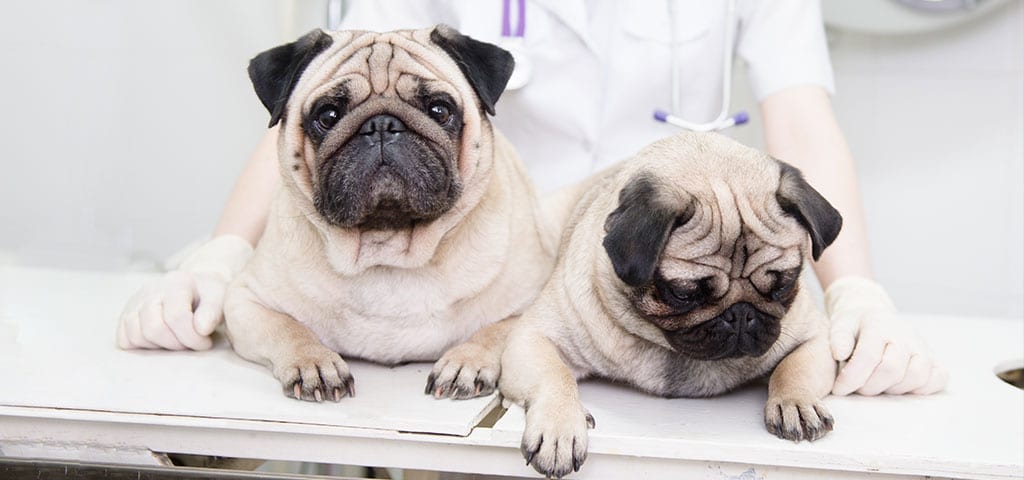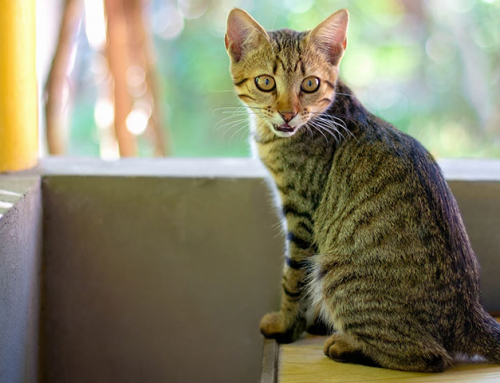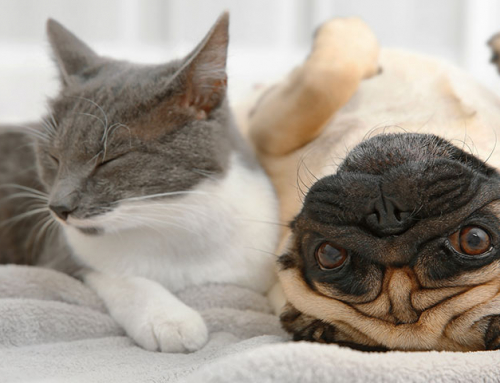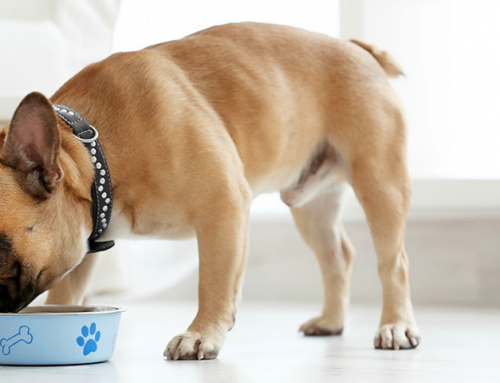Last week I met a new patient. A family brought me their chubby, handsome, middle-aged pug. He had been to his regular veterinarian several times over the prior month because he had unrelenting soft stool. Their usual veterinarian was out of town, so the owners came to my hospital.
The prior veterinarian is a good one. He did very appropriate tests for loose stool, a fecal and a Giardia test (both negative), and he had treated with appropriate medications. The owners readily admitted that the pooch got a lot of human food snacks (actually, the wife ratted out her husband on this point!). I remember commenting that the prior vet had already tried the “simple stuff”, so we discussed various causes of diarrhea and other available therapies for diarrhea (including backing off on all the human goodies). I repeated a fecal test and also submitted a blood profile, CBC and urinalysis to rule out other underlying diseases.
The owner did comment that this doggy had been drinking a little bit more since the diarrhea started, and he had lost a pound over the month of diarrhea. Both increased thirst and mild weight loss could be expected with a month’s duration of loose poop. Boy, am I glad I ran lab work! His blood glucose was over 600. Overall, the rest of his lab work was pretty boring. I typically check my patients’ lab work results on my tablet as I drink my morning coffee on the couch before work. I went to work early, called in a prescription of insulin to the local pharmacy for them to pick up and made the owners come back to the clinic. By mid-morning we had started him on Levemir and we had finished our first “diabetes lesson”. The owners and pet were heading out the door with a pile of diabetic educational articles.
After 45 minutes of me talking about pet diabetes, the husband started to have the glazed over look in his eyes. That’s my signal to shut up. I’m chatty regardless, and when I meet a new diabetic pet owner I enthusiastically do my best to instill the important basic diabetes concepts. I then send away with “homework” (educational materials) and check in with them over the coming days to make sure they are comfortable, or if they need further lessons with the glucose meter or concepts.
To be honest, I wasn’t particularly anticipating diabetes for this patient. You might guess as the staff veterinarian for ADW Diabetes that I’m always on the lookout for diabetes. If a pet presents because of excessive thirst, I often get my glucose meter out and check a blood glucose right there during the physical exam. Nonetheless, as a general practitioner you can imagine I see a whole lot more patients with diarrhea than diabetes. The moral to this story is this: if a medical situation doesn’t resolve with appropriate care, look for an underlying disease. Run a blood panel. Delve deeper.
Furthermore, if your pet is diabetic, don’t assume that any medical issue is because of the diabetes. If something isn’t going quite right and your vet suggests running a blood panel, do it! Just because your pet is diabetic doesn’t mean there can’t be another issue at play. Never underestimate the value of a screening blood panel!
NOTE: Consult your veterinarian to confirm that my recommendations are applicable for the health needs of your pet.













Hello Dr. Sutton, I have not written to you in quite a while since I put our precious cat Missy to sleep a couple of years ago. She had several health issues (among being diabetic) but lived a wonderful 14 years. After reading this article about the pug, I thought I would ask you about my 6 year old cat Pumpkin. He has been peeing and pooping outside of his litter box for about 1 month and because nothing has changed with his routine (one other cat of 15 years old that they get along fine and tolerate each other) nor has his diet changed, so I took him to the vet. The vet did not do any blood work because when I told him he does not stay in the litter box for long periods of time and doesn’t drink any more water than he normally does, he said it was an emotional issue and not a physical one. BUT Pumpkin is 27 pounds heavy and he said to decrease his food by 10% so he can begin to lose weight. He even suggested I get a 3rd litter box which I have done and this still has not helped the situation. At least the poop accidents are in the litter box tray. The only thing that we can see is different is that our 2nd cat Weenie has been using his litter box occasionally and we don’t know if that has upset him. I guess my question is … should I insist he have some blood work done to rule out any kind of physical issue? I need to try and figure this out as it is becoming a real issue at our house. His tinkling habit is on the carpet in front of my bathroom sink and I am very concerned about this continuing. Any advice would be appreciated. Paula Smith
Hi, Paula! I think at least running a urinalysis would make sense since this is a new issue. It can reveal crystals, glucose (let’s hope not but he is a big boy), infection/inflammation, etc. it might indeed be behavioral, but we don’t know unless we run the test. I’m glad you have him on calorie restriction. Low carb can help him lose weight. Keep us posted and have a great day! Joi
Hello Doctor,
Great story regarding the cute pug. I could relate to the owners. I have been taken care of my girl for over 4 year’s she also is diabetic. Her name is Blanca, she is my 10 year old part Maltese & Chihuahua little girl. As long as you follow her proper insulin dose daily she will have a absolutely normal life.
Best of luck,
Johnnie….